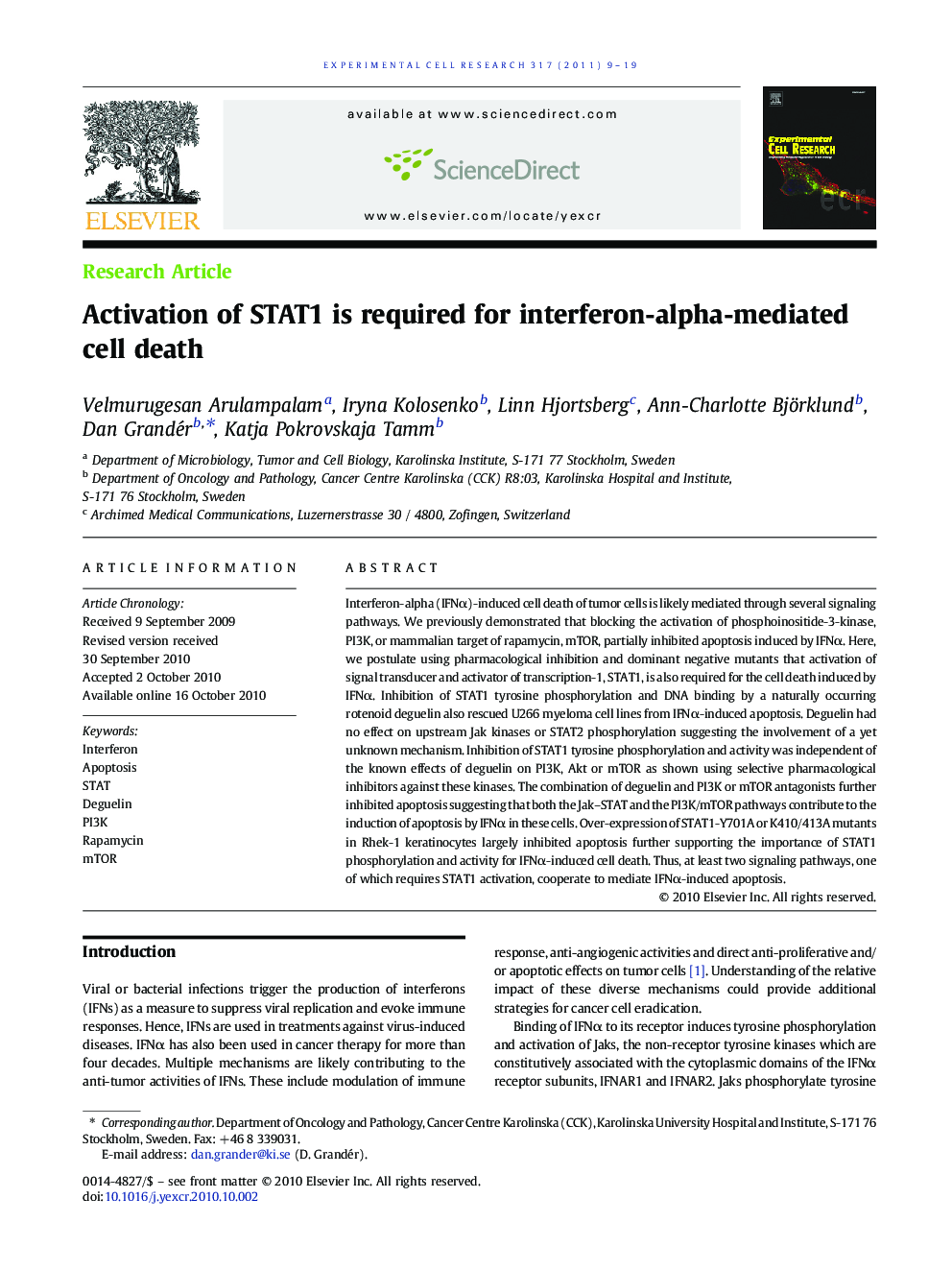| Article ID | Journal | Published Year | Pages | File Type |
|---|---|---|---|---|
| 2131722 | Experimental Cell Research | 2011 | 11 Pages |
Interferon-alpha (IFNα)-induced cell death of tumor cells is likely mediated through several signaling pathways. We previously demonstrated that blocking the activation of phosphoinositide-3-kinase, PI3K, or mammalian target of rapamycin, mTOR, partially inhibited apoptosis induced by IFNα. Here, we postulate using pharmacological inhibition and dominant negative mutants that activation of signal transducer and activator of transcription-1, STAT1, is also required for the cell death induced by IFNα. Inhibition of STAT1 tyrosine phosphorylation and DNA binding by a naturally occurring rotenoid deguelin also rescued U266 myeloma cell lines from IFNα-induced apoptosis. Deguelin had no effect on upstream Jak kinases or STAT2 phosphorylation suggesting the involvement of a yet unknown mechanism. Inhibition of STAT1 tyrosine phosphorylation and activity was independent of the known effects of deguelin on PI3K, Akt or mTOR as shown using selective pharmacological inhibitors against these kinases. The combination of deguelin and PI3K or mTOR antagonists further inhibited apoptosis suggesting that both the Jak–STAT and the PI3K/mTOR pathways contribute to the induction of apoptosis by IFNα in these cells. Over-expression of STAT1-Y701A or K410/413A mutants in Rhek-1 keratinocytes largely inhibited apoptosis further supporting the importance of STAT1 phosphorylation and activity for IFNα-induced cell death. Thus, at least two signaling pathways, one of which requires STAT1 activation, cooperate to mediate IFNα-induced apoptosis.
